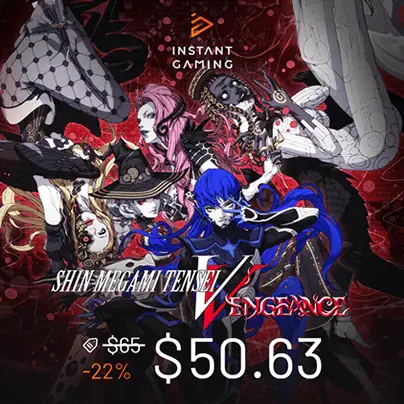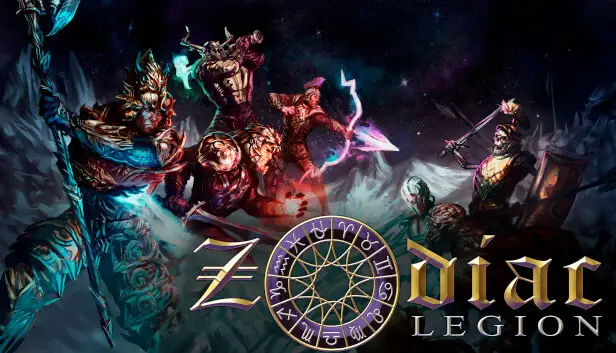First Turn – Introduction
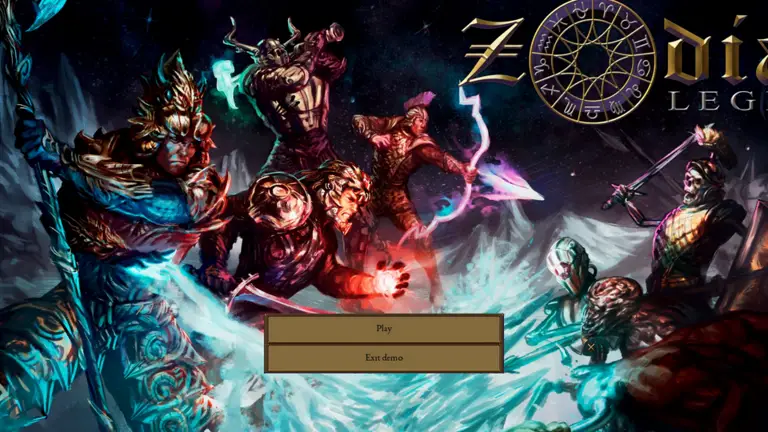
Greetings! And thank you, so much, for doing this interview with us! I’m very impressed with the project. It looks and feels undoubtedly unique – yet retains that classical tabletop aesthetic of early D&D and GW’s Warhammer Fantasy. At the center of the gameplay is a complex turn-based, party-based, combat system. It almost reminds me of the great SSI games of old, with their ultra-elaborate battle mechanics.
But, how about I let the developers themselves introduce their work! What are the most important features of the game – what’s its soul? Also – what is your main goal with this project?
Alexandre:
Greetings, I am Alexandre, the project lead for Zodiac Legion.
Our main goal was to create a fantasy rendition of X-COM that would combine classic fantasy dungeon crawling with an overarching strategy layer. The most important feature of the game is its tactical combat, but the strategic layer is there to give the campaign a grand scale and a personal context: You’re fighting on the tactical layer to defend your Domain, and you choose your own battles to achieve your global objectives.
Indeed, we’re also big fans of Warhammer, while Laser squad and HeroQuests were the most influential games for me as a kid.
Second Turn – Characters’ Style
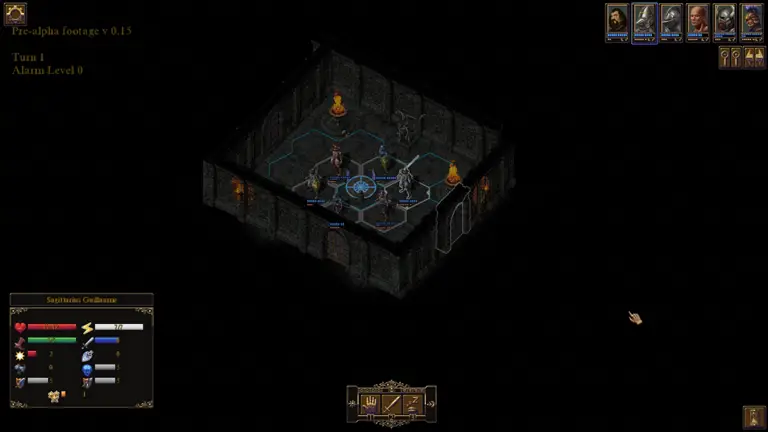
The first thing that struck me about the game was the almost Warhammer-esque look of the characters. Warhammer-esque in that there’s a lot of variety mixed in with the general dark fantasy aesthetics. It’s more like a 16th-17th century style, rather than a more traditional medieval ambience. Together with some definite Mediterranean, gladiatorial-like features.
What inspired this unique graphical approach? Was it just a regular array of books or tabletop games, or something more specific?
Alexandre:
We wanted to ground our setting in a traditional late medieval setup that would be witness to the reappearance of magic. Starting with a mundane setting served two purposes for us:
It allowed us to set the game in a believable, familiar universe, as the people in this world see magic the same way we see the old Greek, Celtic or Norse mythology in ours.
It also allows us to introduce abilities gradually, and give a good reason to make progress dependent on raiding ancient ruins that were not accessible between the ages of magic.
We chose a late medieval style over an early one mostly for two reasons: the design of late medieval armor is more iconic, and we wanted armor in the game to offer great protection against “mundane” attacks. When it comes to raw protection, late medieval armor is simply hard to beat.
As for the Roman-styled characters in the game, it’s because magic is reappearing after a few centuries of dormancy, so the reawakened skeletons of ancient times still carry their old gear.
Third Turn – The Team and The Priorities
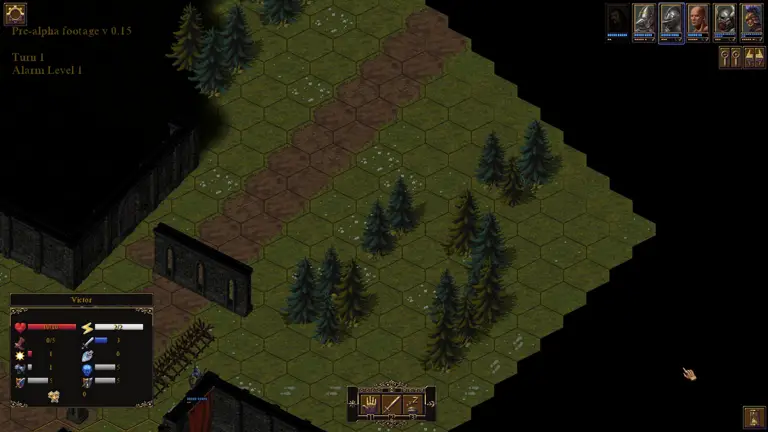
It’s really impressive how professional the game already looks, even though it’s still a demo. There are many, more peripheral, details already implemented. Stuff, that’s often ignored during the early stages of development, yet is invaluable for a game that wants to be taken seriously from the very start. Like the sound effects, the complex animations, the furniture, the UI elements.
It certainly appears as if there’s a full-time development team involved in the project – with multiple specialists working in parallel. Could you tell us about the studio’s organization and the general work process? Also – what are your main priorities at the moment?
Alexandre:
I started working alone, then contracted two pixel artists: Thomas “Feichtmeir” Cyangmou and Ben “Wolfenoctis” Addendorf, who made most of the pixel art during the first stages of development. They’ve moved on to other projects since then.
I then worked with Valery “Thu” Kim and Artyom “Brullov” Nevinchanyi to satisfy the immediate needs of the game in the meantime.
David “DaaWeed” Martins is our new pixel artist, and he started working on the project last year. I’m glad the game still manages to maintain its visual coherence with so many different artists involved, but they all went out of their way to adapt to the existing style.
Maciej Bogucki has been working on the writing and level design for 6 years, and Alcibiade Minel has been in charge of the soundtrack for just as long. I’m the only one working full time on the project, but I’m very lucky to have been able to collaborate with them both for such a long time, because it makes it possible to discuss ideas and share a common vision.
It makes organization a bit difficult, as they all have to juggle various other contracts, but that’s probably for the better, as it can take me quite a long time to integrate their work, or build the functionalities or tools they need. It makes our cooperation a bit more flexible.
Given that the demo has been publicly available for some time already, our main priority is to improve the introduction to the game. We’re still not sure about the best way of doing it, but we’re leaning towards adding dynamic help to the early game.
We’re focused on improving the responsiveness of the game and the UI, which should help with making everything feel less arcane.
Once that’s done, we’ll rework a few elements on the tactical layer and add some more abilities, but most of the work will focus on including semi-randomized levels, generated out of pre-made blocks (usually rooms), and fleshing out the strategic layer.
Fourth Turn – The Multicultural Approach
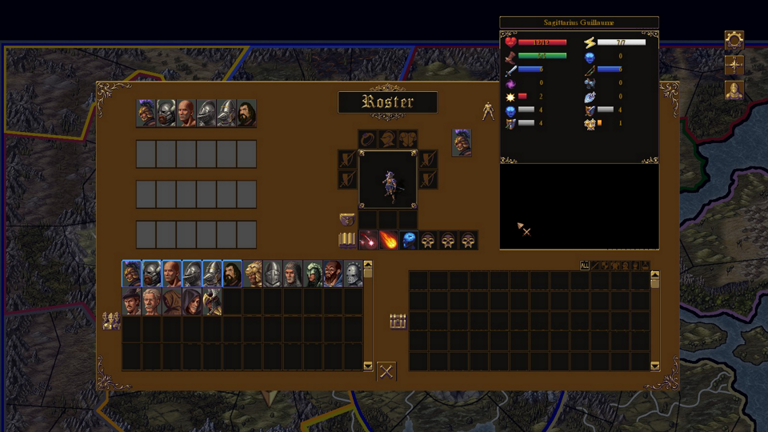
Could we talk a bit more about the team itself? I’ve looked at the page on your website, and it definitely seems like you’ve got developers from all other the world. I think I even saw a very Russian/Eastern European name in there! Are you based in any particular country, or do you primarily work over the internet? Were there any challenges in working in such a multicultural team? Were there any unique advantages in this?
Alexandre:
I wasn’t looking for representatives of any particular cultures really, I recruited contributors who seemed the best fit for the project. After I came across Cyangmou’s (Austria) DeviantArt page, I really wanted to work with him. He recommended that I also work with Wolfenoctis (South Africa) because there was a lot to do. Since the beginning, we’ve communicated exclusively online, and I haven’t met anyone from the team in person, except for our composer, Alcibiade. The game itself has traveled a lot, actually. I started working on it in Shanghai, then we moved back to France, then 4 years later to Germany.
Fifth Turn – The Base-Building Component
Not just the style – the gameplay too seems varied, at least to some extent. While at its heart, it’s all about turn-based tabletop-style combat – there’s also an entire base-building system being worked on. What are your goals with it – what’s your vision for the mechanic? Is it just something to add that bit of variety to the game? How important is it going to be, in the end?
Alexandre:
The main purpose of the base-building is to make you care about your headquarters and to give you something to fight for. My preferred genre has always been “RPGs with castle management”, but there aren’t many games like that out there. We plan to have the strategic layer relatively simple compared to the tactical one. It’s mostly about tailoring the Zodiac Order to your play style: You will choose which facilities to build and which magic disciplines to study. Enemies will also try to invade your citadel, and we plan to have the map of the base during tactical combat mirror its layout on the strategic layer, which will give you some options and opportunities to prepare against infiltrations.
The strategic layer won’t be purely about base building, but will also involve choosing which battles to fight, and how thin you’re willing to spread your valuable champions. You will allocate assets (such as armies, agents or facilities) to various missions on the map, and send your characters to either provide assistance or thwart enemy operations. Diplomacy and sabotage targeted at other factions will be on the table as well.
Sixth Turn – The Turn-Based Combat
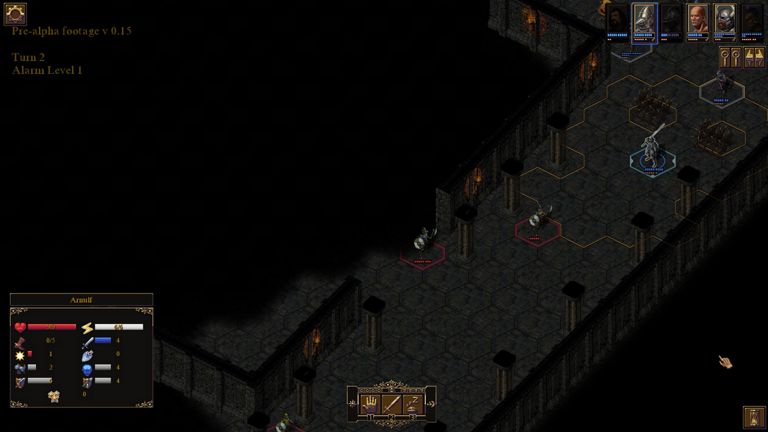
So – the core of the game is its very classical-looking turn-based combat. There’s clearly a lot of complexity to it. It’s also clearly inspired by tabletop systems, with a multitude of arcane rolls going on in the background. I can certainly imagine myself sitting with a pen and paper, writing down a million esoteric stats and whatnot. If Zodiac Legion was an actual printed board game, that is. Good thing we have computers, right?
Alright – let’s get to the question. How much do you plan to expand the combat mechanic in the future? It’s certainly difficult enough as it is – aren’t you worried that it could intimidate those who aren’t familiar with classic tabletop systems?
Alexandre:
The game system itself would have to be changed a little to work on tabletop.
The game counts dice results under a given threshold, like Vampire: The Masquerade or Shadowrun, so it remains close to a tabletop system. We chose this approach because it makes the dice roll outcome relatively easy to “learn”: having a score equal to the target difficulty will result in success half the time, having +1 will result in a 3/4 success rate, and +2 will be around 7/8.
It also makes it critical to make sure you’re in a situation where you can outmatch the opponent, because dueling someone stronger is bound to fail.
The dungeon crawling is more in line with traditional tabletop dungeon-crawlers, like Warhammer Quest, Descent or Gloomhaven than with traditional tactical RPGs, in that we have large maps to explore in continuous turn-based mode. It’s also close to Invisible, Inc. or Chaos Gate in that regard.
We’re content with our combat mechanics: support, flanking and archery protection all rely on positioning. Still, we plan to add more modifiers to archery, like a range penalty to shooting indoors, and a range penalty to damage, and make magic require a concentration check so that casting the best spells requires some preparation.
We’re also working on making melee a bit stronger, as the melee knights lack staying power right now, but most of the complexity will come from abilities.
I don’t think complexity will be an issue once we have enough added in-game help to let the player make informed decisions, while abilities will be slowly introduced over the course of the campaign. That was another reason for setting the game in a world of reawakening magic.
Seventh Turn – Might and Magic
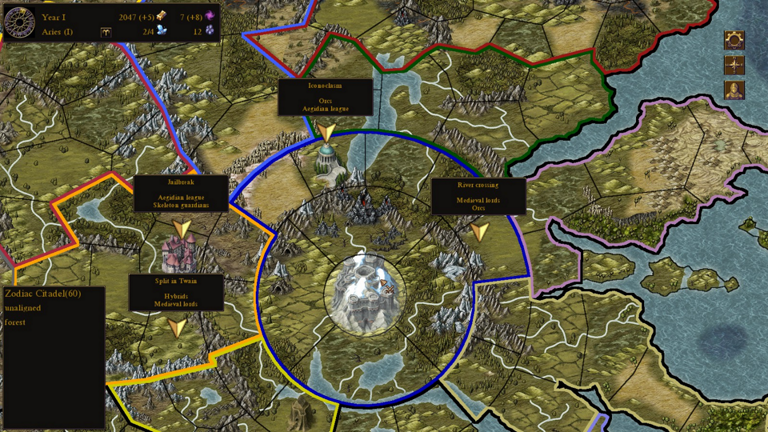
While there are plenty of different inspirations mixed in to create the game’s unique style – the main atmosphere is definitely of the fantasy variety. There are orcs and undead and, most importantly, magic! Once you decide to add sorcery to the game – you open the gates to all sorts of eldritch witchery, just waiting to be implemented. How far are you planning to go with this? How important will sorcery be to the game?
In general, how complex will the class system be?
Alexandre:
Magic is a key element of the game. We wanted magic to be similar to technology in X-COM, and to have it work as a game changer. The game world starts in a state where magic hasn’t been available for centuries, so most of the arcane knowledge has been lost, and many people believe that magic exists only in tales. Mastery of magic is what allows the player to turn his warriors into Zodiac champions, but he needs to recover the knowledge and the artifacts allowing him to do so. Therefore magic will become more prominent as the game goes on, and will serve for both empowering warriors and letting wizards channel its raw energy.
The Zodiac is the source of the Order’s power, so the ‘heroic’ character classes will be tied to the Zodiac signs, with some abilities and spells specific to a single sign, and others to a subset of signs. The four elements are very important in the Zodiac, so they’re also featured in our magic system, with each element being associated with three signs. Characters will also have an “origin” profession, like knight, scout, and archer, as well as ascending and moon signs that will let them acquire abilities from other classes.
Eighth Turn – The Lore and The Story
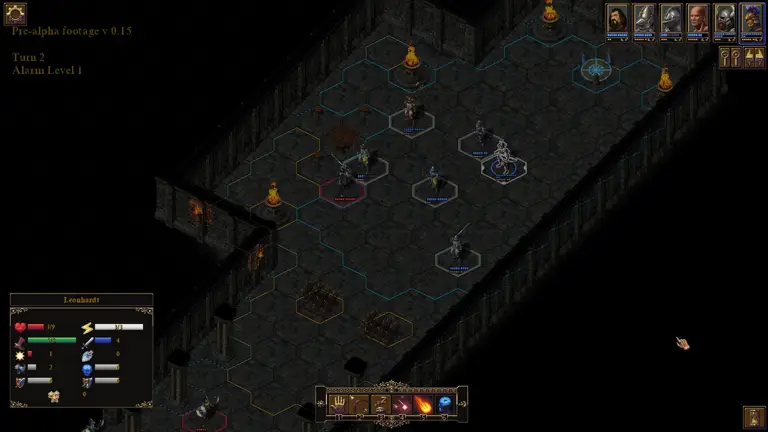
To me, the game’s aesthetics looks very similar to that of the legendary Games Workshop setting. Yet there isn’t much to go on, so far, concerning the general background lore. The visual style certainly has that grimdark look to it. How brutal are you planning to make the rest of the game’s world? Are you going to move in a more Tolkien-like direction? Or maybe something with a more Lovecraftian, weird horror, feel to it? Could you talk a bit about the general lore?
Also – Is there going to be some main quest line to guide the players across the realm – or is it going to be more of an open world style exploration?
Alexandre:
In the world of Zodiac Legion, magic ebbs and flows in cycles, depending on stellar conjunctions. The last cycle saw a terrible war between the Empire and its Zodiac Legion and the League of Aegidia. The Emperor and the Zodiac champions sacrificed themselves to overpower the minds of other magic users in the world and accelerate the end of the age of magic, as peace could not have been achieved otherwise. However, some of the League’s high sorcerers managed to avoid obliteration by striking a pact with otherworldly protectors, and so they entered a state of slumber that allowed them to hibernate through the magical apocalypse.
The end of the age of magic gave way to the collapse of the Empire and left many arcane sites unreachable, as the teleporters that led to them became inactive. The Zodiac Order tried to safeguard the knowledge of magic, but its resources dwindled quickly, and its influence shrunk over the centuries.
The main antagonists in the world of Zodiac Legion are other humans, who see the Zodiac Order as an existential threat and who want to secure all magic power exclusively for themselves. It’s a world thrown into turmoil by the reawakening of magic, with many of those in power considering it a threat to their position, while others view it as an opportunity for increasing their might. But magic in itself is far from the cosmic horrors of Lovecraft or the abominations of chaos.
The overland map will feature some exploration, but more in the vein of 4X games than what you’d find in a regular RPG. For example, you will discover access points to hidden places of power over time as your astrologers scramble to interpret the messages of the stars needed to locate them. In general, the game structure will be close to X-COM, where you need to find a way to bring the fight to your opponents and defeat them once and for all, but you’re free to choose the course of action leading there.
Ninth Turn – The Code
Clearly, a ton of effort went into crafting this game, in terms of the style and the gameplay. Yet, I did run into a number of performance and settings issues – enough so that the game became very difficult to play, at times. I was also surprised to see that the game uses Moai – certainly an interesting engine, yet not as well known as some other ones. From what I understand, it’s mostly used for mobile games, too.
As a programmer and a developer myself, I’m very curious – why did you choose this particular software? What advantages does it offer over the others? Are there any issues with optimization you are currently working on?
Alexandre:
Moai started out as a portable engine that could target different platforms with minimal changes. When I started working on the game, I thought it would be better to keep the option for tablet ports open. Still, it’s not really true that it was used mostly for mobile games: for instance, Broken Age, Invisible, Inc. and Eastward have all been made with Moai. It’s not very popular these days, but what led me to choose it was its open source nature. It means I can patch any issue myself without submitting a ticket and waiting for someone else to do it.
I started prototyping with Python, but distributing a game made in Python seemed much less convenient than using a C++ engine with Lua binding. I was reluctant to learn a new language at first, but Lua is really one I like to work with.
As for optimization, I’m currently working on threading the calculations, so that they don’t interfere with input and display anymore, as the pathfinding and LoS calculations can take quite some time.
Tenth Turn – Conclusion
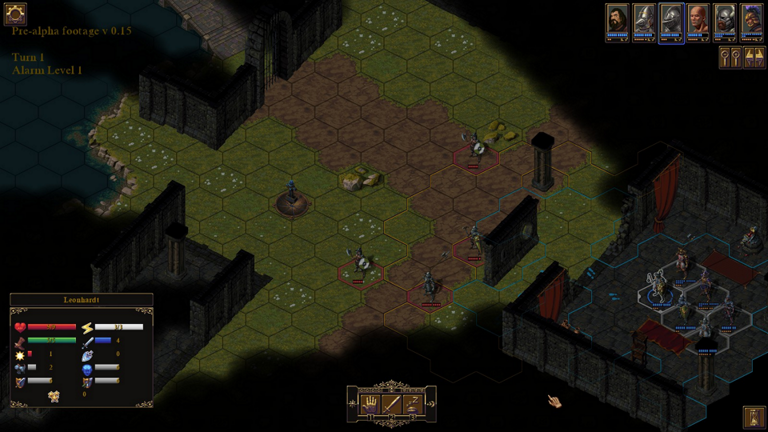
Thank you for answering all these questions! The game looks really promising – there’s a great depth to its gameplay and its mechanics. Clearly, a lot of effort went into making it look professional, yet without losing its unique atmosphere and visual style.
So, in conclusion, is there anything in particular you want to tell the audience about your work? If there’s one thing you want the community to know about your project – what is it?
Alexandre:
We want everyone to know that it’s possible to have a game utilizing classic and modern design principles without compromising on the aspects important to both. That is to say, our aim is to draw inspiration from the vintage games we love without engaging in cargo cult or producing something derivative, and to stay true to the “old-school” vision while taking into account the decades of valuable experience in game and interface design, particularly when it comes to proven gameplay solutions and convenience. By combining the best, timeless parts of the old and the new, it’s not only that we believe that Zodiac Legion will turn out to be a good game, but we also hope that it will establish a lasting legacy for itself.
Finally, thank you for your thoughtful questions and your interest in Zodiac Legion. We’re always happy to talk about our game.
Goodbye!
Thank you, to the audience also, for reading this interview and for your continuous support of TBL’s great quest. I hope it was interesting and that you liked the questions! Goodbye!

